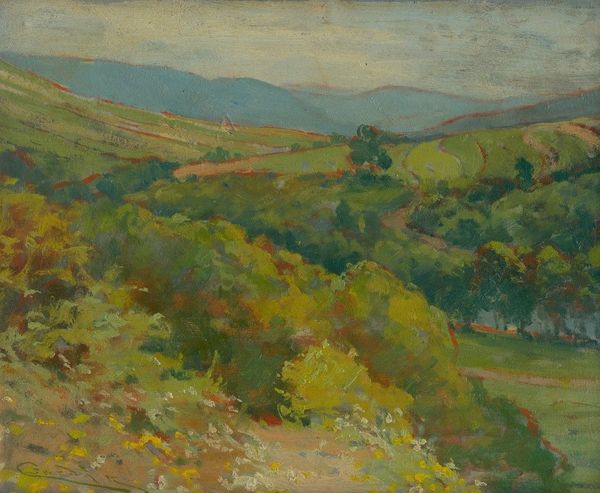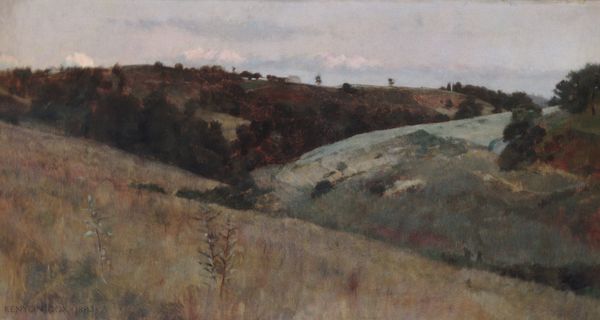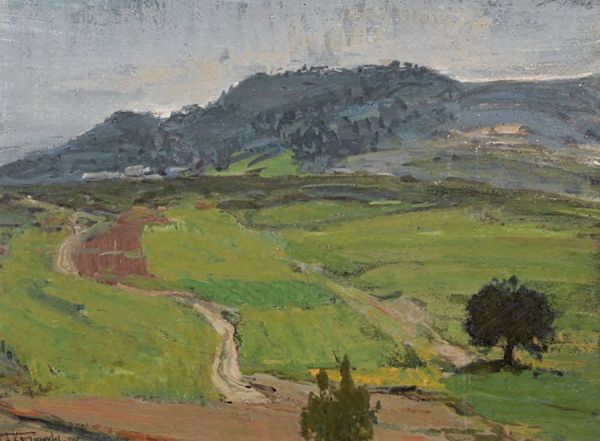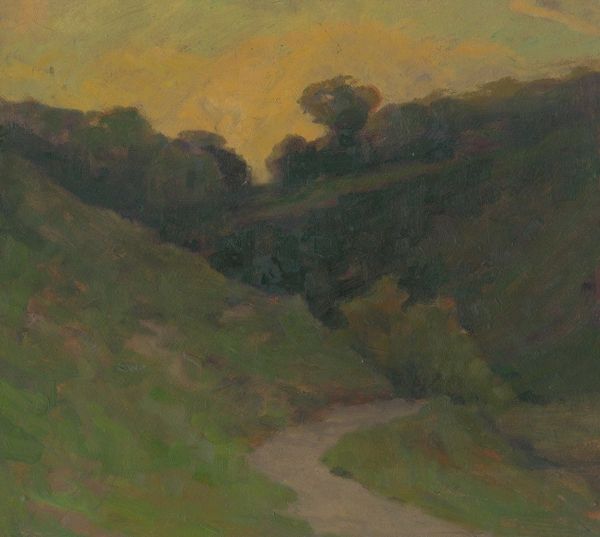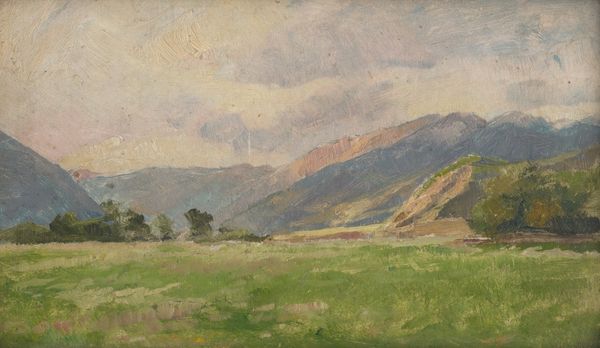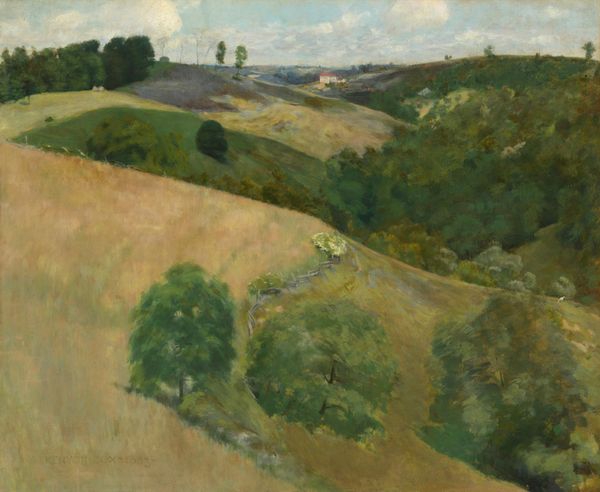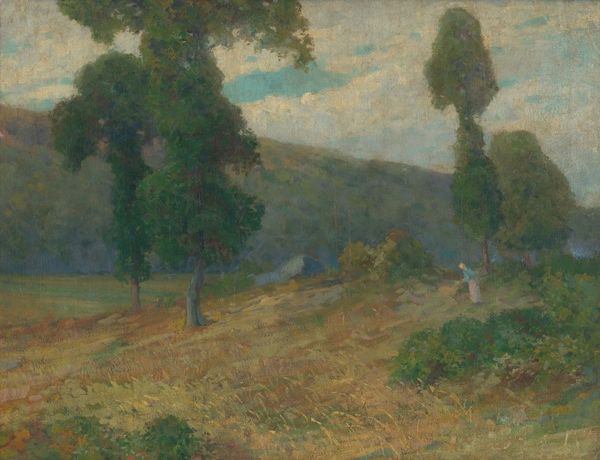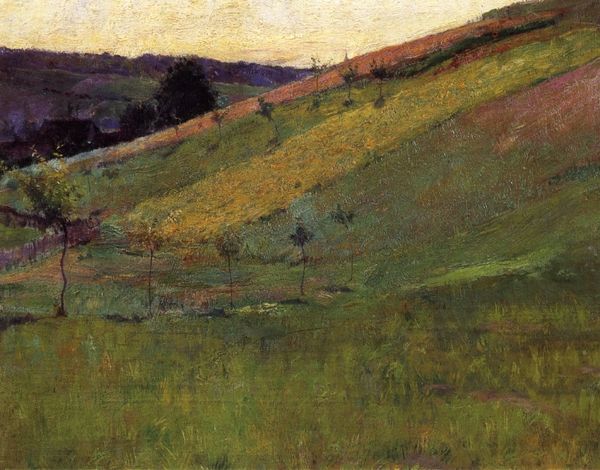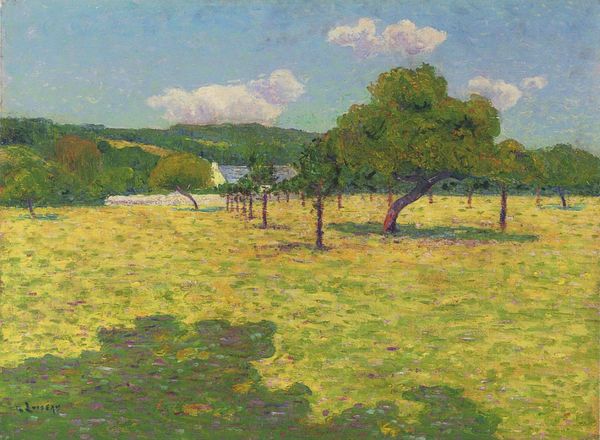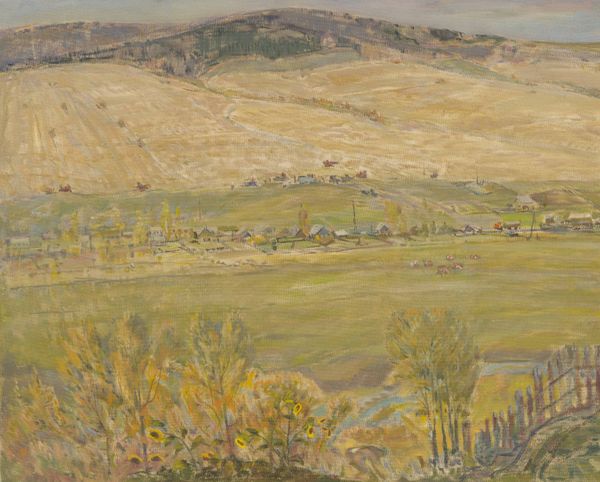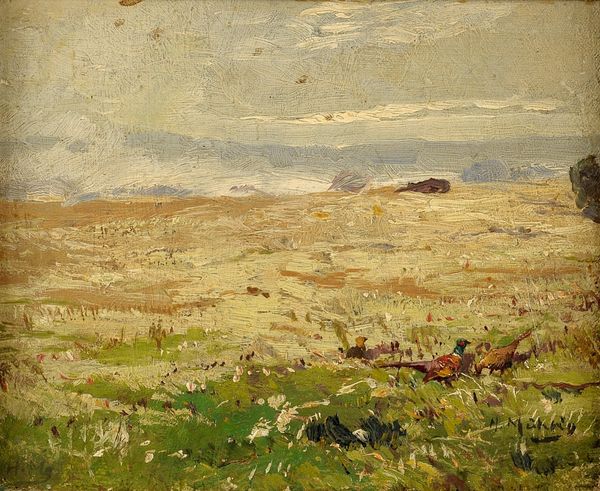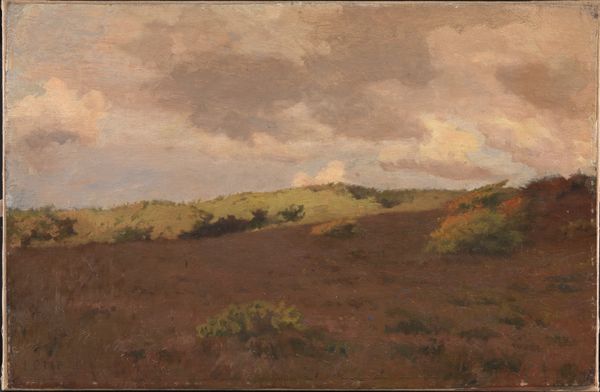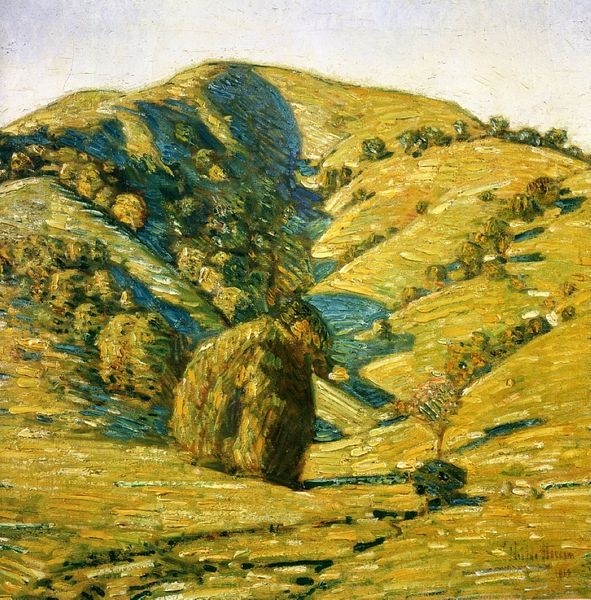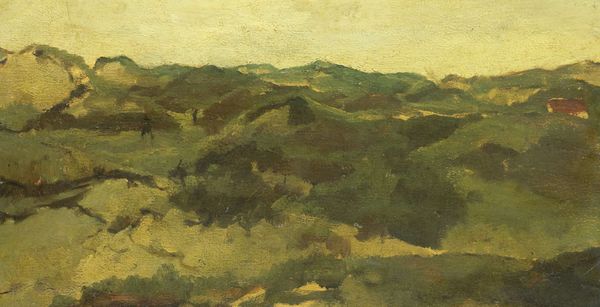
plein-air, oil-paint, impasto
#
impressionism
#
plein-air
#
oil-paint
#
landscape
#
oil painting
#
impasto
#
natural background
#
realism
Copyright: Public domain
Curator: Granville Redmond's "Afternoon (study)" presents us with a rolling landscape rendered in oil paint, likely en plein air given the artist's impressionistic style. What is your initial reaction? Editor: A sense of tranquil openness strikes me immediately. The hills evoke both familiarity and a kind of sublime potential—California hills as an important site of environmental activism and change. Curator: Observe the artist's use of impasto, those tactile brushstrokes layering paint to construct form and texture. The play of light across the hillsides creates an inviting, pastoral scene. Consider, too, how Redmond manipulates warm and cool colors, creating an image suffused with the hazy heat of California. Editor: The way the eye moves across the composition makes me think about histories of settlement, particularly in relation to indigenous displacement in that very same area. Do you feel that his presentation normalizes occupation? It might be unintentional, of course, yet this landscape remains haunted. Curator: It's true, there's a silence here that might invite such questions. From a purely formalist perspective, the composition guides our gaze, creating harmony through spatial organization and balanced color relationships. Editor: Right, and the impressionistic rendering softens harsh historical realities. I suppose what’s at stake is considering whose impression is being valued. Are we critically addressing Redmond’s positioning as a hearing artist painting this landscape, in dialogue with Redmond’s work advocating for the Deaf community and education for Deaf children? Curator: It’s intriguing to consider such contrasting modes operating in the same individual, but Redmond’s work stands on its own, whether perceived as merely landscape painting or cultural expression. Editor: I can agree with that, provided we recognize its place in broader conversations around landscape art and settler colonialism, of course. Thanks for sharing your insights on technique. Curator: Likewise, you’ve shifted my viewpoint.
Comments
No comments
Be the first to comment and join the conversation on the ultimate creative platform.
